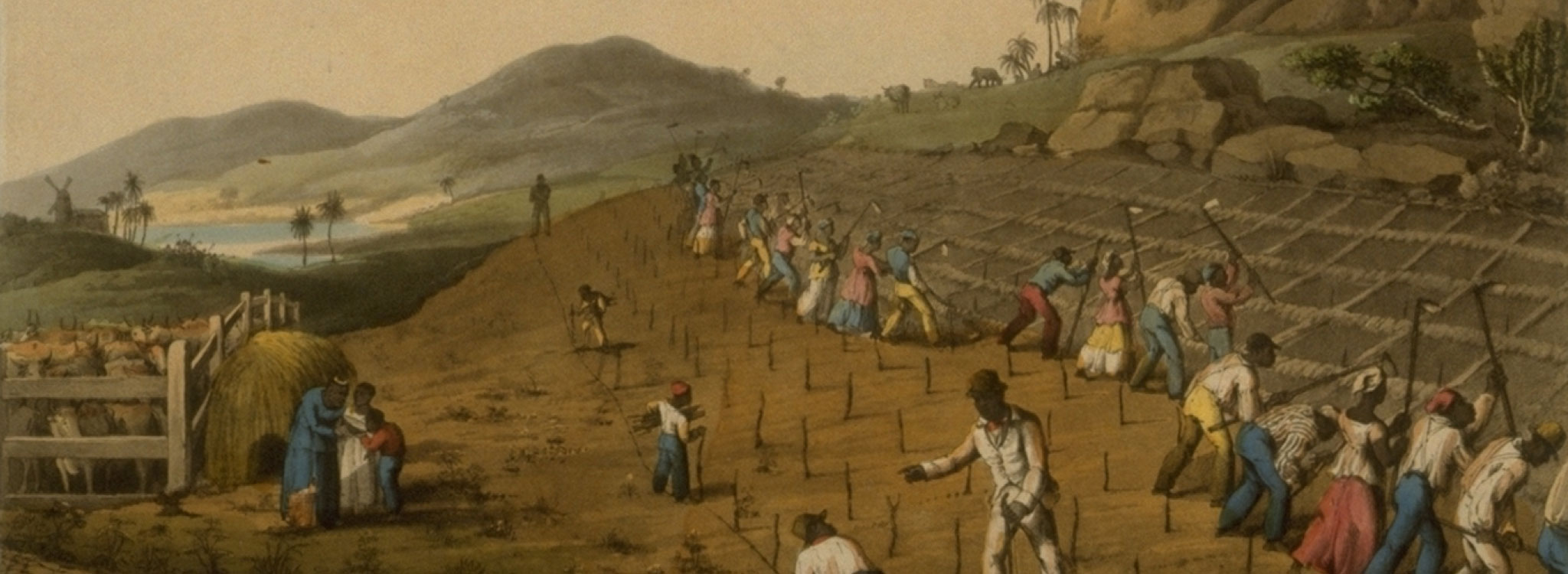Dédée Bazile Défilée (c. 1730s—1810s), born Dédée Bazile, was also known as Défilée la folle (madwoman) and was born enslaved in Cap Français (now Cap-Haïtien) in the French colony of Saint-Domingue (now Haiti), to unknown parents. She is remembered for burying the revolutionary leader, and independent Haiti’s first ruler, Emperor Jean-Jacques Dessalines.
Some historical accounts pinpoint Défilée’s rape and torture by her enslaver at age 18 as the genesis of her alleged madness. Défilée was homeless and publicly spoke to invisible beings, possibly lwas (spirits) of Vodou, which is a syncretic religious system incorporating West African and Catholic beliefs. These actions defied emerging social conventions and contributed to her reputation as la folle, the madwoman. It is possible, however, that the twelve-year anticolonial war against France had much to do with Défilée’s seemingly odd behavior. The arrival of the French general Donatien Rochambeau in Cap Français in 1802 dramatically shifted the course of the Haitian Revolution. Canine warfare against insurgent troops, then known as the Indigenous Army of Saint-Domingue, became a routine public spectacle, during which invited guests of General Rochambeau would gather to witness highly trained dogs devouring black victims. These public acts of ritualized violence compelled men and women like Défilée to serve in the revolution for freedom and independence. After losing several family members during General Rochambeau’s campaign against the revolutionaries, Défilée became an auxiliary member of Dessalines’s unit, adopting the name Défilée. The specifics of her military career lack documentation. However, if the revolutionary army followed French custom, enlisted women, known as vivandières, would feed and nurse front-line troops.
Serving the revolutionary army as an auxiliary nurse meant Défilée served and worked alongside the revolutionary soldiers. She traveled along with Jean-Jacques Dessalines’s contingent for years and witnessed the defeat of the French in November 1803, as well as Haiti’s declaration of independence the following January. The transition from slavery to independence failed to meet the expectations of the revolutionary masses, however. General Jean-Jacques Dessalines’s military-inspired rule and enforced regime of plantation labor disillusioned the popular classes. They felt they were being thrust back into a form of slavery much like that which they had just overcome by gaining independence. Like many post-emancipation states in the Caribbean, Haitian economic success relied on unpopular labor policies. In addition, high-ranking military officers did not approve of Dessalines’s command or his proposed economic policies that threatened their interests.
As a result, a popular uprising of citizens and the military led to the assassination of Dessalines on 17 October 1806. After he was killed at Pont Larnage (now Pont-Rouge), soldiers dismembered Dessalines’s body and implicitly dared civilians to bury him. Défilée, who may have been part of the contingent that followed the emperor to the site of his death, is credited with collecting the mutilated body parts for burial. Popular understandings of Défilée suggest it was precisely because of her madness that she dared to defy the military’s order. Her quandary echoes that of the Grecian mythological figure Antigone—she would have to disobey the authorities to bury the dead. Due to the popular perception that Défilée suffered from mental illness, it does not appear that authorities punished her for defying their mandate. Witnesses note that she would periodically lay flowers on the revolutionary leader’s unmarked grave.
After this act of heroism, little is mentioned of Défilée until one of her descendants, Condol Bazile, a solider serving under Emperor Faustin Soulouque (1782–1867), recorded that she died sometime during President Alexandre Pétion’s reign (between 1807 and 1818). Though she infrequently appears in historical records, Défilée is commemorated often in contemporary Haitian popular culture. Of particular note are Manno Charlemagne’s 1994 song “Defile” and RAM’s 2008 Carnival song of the same name, both of which encourage listeners to follow her example of courage and patriotism.
Read the full, original biography by Nathalie Pierre in the The Dictionary of Caribbean and Afro-Latin American Biography.
Online Resources
Charlemagne, Joseph Emmanuel <https://oxfordaasc.com/view/10.1093/acref9780195301731.001.0001/acref-9780195301731-e-73623>
Dessalines, Jean-Jacques <https://oxfordaasc.com/view/10.1093/acref/9780195301731.001.0001/acref-9780195301731-e-73788>
Manno Charlemagne. "Defile." YouTube, uploaded by Manno Charlemagne - Topic, 29 April 2015, https://www.youtube.com/watch?v=OQZfE40ht9Q.
Pétion, Alexandre Sabés <https://oxfordaasc.com/view/10.1093/acref/9780195301731.001.0001/acref-9780195301731-e-74802>
RAM. "Defile." YouTube, uploaded by journeytobossdom, 4 Feb. 2008, https://www.youtube.com/watch?v=2KMjn-w5i_0.
Soulouque, Faustin-Élie <https://oxfordaasc.com/view/10.1093/acref/9780195301731.001.0001/ acref-9780195301731-e-75154>
Bibliography
Braziel, Jana Evans. “Re-membering Defilee: Dedee Bazile as Revolutionary Lieu de Memoire.” Small Axe 9, no. 2 (September 2005): 57–85.
Claude-Narcisse, Jasmine. Mémoire de femmes. Port-au-Prince: UNICEF Haïti, 1997.
Coles, Claire Renée. La galerie des présidents d’Haïti, 1804–2004. Port-au-Prince, Haiti: Bibliothèque Nationale/PressMax, 2006.
Author
Nathalie Pierre
Adapted by
Jennifer Mojica Santana
Contributing Institutions
Hutchins Center for African & African American Research, Harvard University, Cambridge, MA.
Oxford University Press (USA) African American Studies Center





